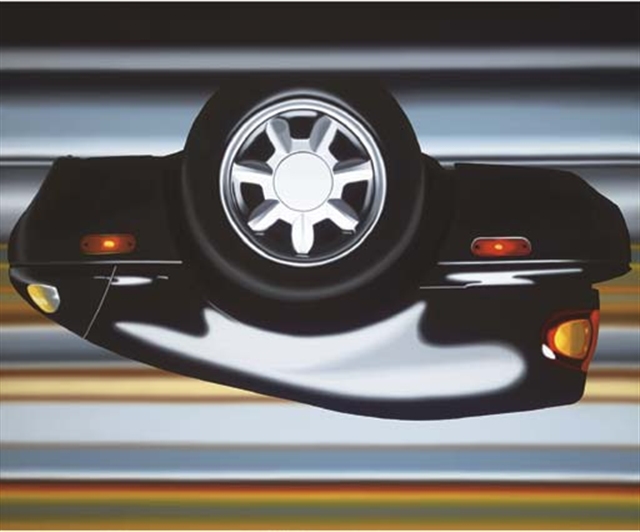"Mais coragem menos petróleo"
Notícia antiga, mas um assunto muito interessante para o Blog, trabalho do artista Rirkrit Tiravanija para a Sharjah Biennial 8 no Emirados Arabes Unidos em 2007.
fonte: artdaily.com
“Some years ago I received an invitation card in the mail from a gallery in New York, (Matthew Marks); it was an invitation to an exhibition by a young artist by the name of Peter Cain. Peter was a painter known for his anamorphic splicing of cars; they were coolly painted with the brushes of oil paint thickly applied to canvas. They were the marks of a realist (almost graphic) with the narrative of a surreal world; it was the world of surfaces and the surfaces of the metallic baked enamel of cars. But if cars were his fascination, the anamorphic world of biotechnological mutation was in the shadow of these cars – a world where Dolly the sheep was being cloned and Adobe Photoshop computer software was about to be introduced to the world, offering a new landscape of photographic rendering beyond our imagination. But Peter’s life was cut short and he did not see beyond the age of 37, and the invitation I received was for an exhibition five years after his death.
On the front of the invitation card was a reproduction from a page of Peter’s artist’s notebook: a text that read “More courage less oil”. Taken in context, that message was clearly a note to himself about the dilemma of being a painter and the moral choices one faces in executing a painting. I kept the card on my wall all these years for what I thought was a very inspired thought, not just for a painter but also perhaps for all artists.
Today, in the present context, we face a different dilemma altogether. The question of courage and the thoughts facing our present condition come ironically from the turn of Peter Cain’s inspired message.
Less oil more courage asks us to face our own desires in the making, and to confront and question them, even as we try to achieve them. How do we, as a society and a community, face our weakness with courage and find the place in our consciousness to redirect the course and path we have been traveling? We will travel to our moral end, but while we are on this road, perhaps a small detour off course can bring us closer, to face the facts and be inspired enough to change.”
Rirkrit Tiravanija
Chiang Mai, Thailand 2007


